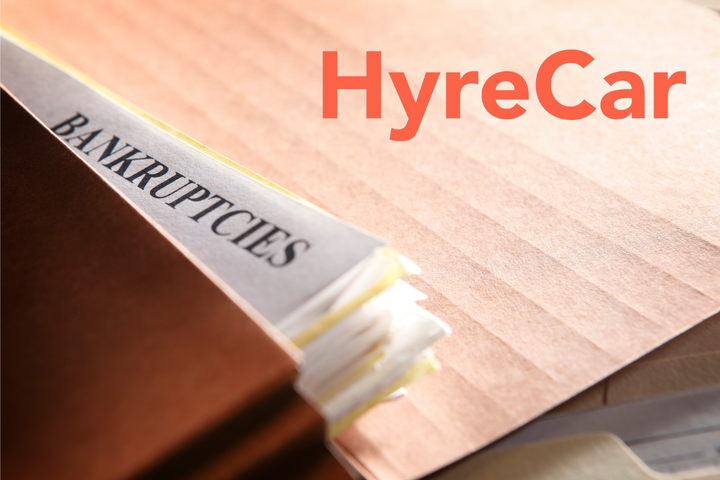
Thankfully HyreCar’s liquidity issues did not kill rideshare and delivery drivers’ desire to work, consumers’ desires to order a ride through Uber or a meal through DoorDash, or the need for fleet owners to connect with those drivers and manage their assets efficiently.
Photo: Canva
Two decades after the last tech-led downturn, executives are relearning the painful lessons that product market fit, generous financing, and healthy growth can’t always fix all problems.
In the case of HyreCar — the carsharing marketplace targeting ridesharing and delivery services that is seeking a buyer — revenue grew 15%, gross margin improved 12.5%, and EBITDA increased 36.5% year-over-year, reflecting how it has quickly become a favorite service of fleet owners under new management.
However, the company recently sought Chapter 11 bankruptcy protection to attract a new owner in the coming weeks. Mississippi-based Holmes Motors, a used-car dealership network, has set the initial or “stalking horse” bid at $7.75 million.
In spite of this growth, what brought HyreCar to bankruptcy? What are the risks and opportunities ahead for the new buyer, and what does the future hold for the rideshare and delivery driver market? As the investment bank managing the bankruptcy sale for Hyrecar, we’ll share our unique perspective on this unique situation.
What’s in Store for the Hyrecar Buyer
Amid the disruption of the bankruptcy process is an asset that we believe has lots of potential. HyreCar’s tech platform helped create much needed infrastructure for the gig mobility and carsharing industries and remains up and running.
The company’s drivers rent vehicles for nearly every major ridesharing and/or delivery service company (so-called “gig mobility” companies), with over 100,000 drivers per quarter signing up on the site. With an established gig-based platform built around carsharing, the marginal cost required to scale into various and diverse adjacencies (such as leisure rentals) would be minimal.
Since its founding, the company has invested over $35 million in the underlying technology and owns a unique data set that enables it to create a better insurance product for those drivers. It has put in place a unique insurance product for gig mobility drivers in collaboration with well-known carriers and insurance brokerage firms, a critical element in developing the business that has been refined over time.
Over the past year, the company’s new management team has also embarked on a strategic restructuring effort that balances investment in risk management to continue differentiating its insurance product with major reductions in operating expenses to improve margins. These efforts have positioned the company to scale sustainably and profitably in the years to come.
The hook? HyreCar needs more cars on its platform. If the right buyer can find a way to solve the car supply problem, HyreCar’s core business should break even within a year based on the new management team’s current plan.
Hyrecar’s Strong Growth, Great Potential
In 2022, the company grossed over $41 million in revenue, a 15% increase from the year prior, according to its bankruptcy court filing. It was able to raise new equity capital as recently as January, and just last September, it helped secure a $100 million credit line for one of its fleet owners to expand its fleet through a joint venture with the company.
But HyreCar faces a far different financing environment from that in which it originally scaled. Unfortunately, that $100 million credit line is no longer available as Credit Suisse liquidates vehicles purchased by HyreCar’s joint venture partner while the company, as the purchase guarantor under the original terms of the agreement, remains liable for the fees associated with the deal without the revenue that was to be generated by that increased supply. Meanwhile, U.S. regional banks face a reckoning of their own.
Thankfully HyreCar’s liquidity issues did not kill rideshare and delivery drivers’ desire to work, consumers’ desires to order a ride through Uber or a meal through DoorDash, or the need for fleet owners to connect with those drivers and manage their assets efficiently. Indeed, given the numbers cited above, demand in the space remains strong.
The upcoming auction of the HyreCar assets will provide the new owner with a reset capital structure and the opportunity for the right operator to continue the company’s growth trajectory with less distractions. As long as the gig economy remains a thing, platforms like HyreCar are going to be needed.
Jim Zukin and Ari Schottenstein are partners at Los Angeles-based Zukin Partners, an investment bank that acts as sell- and buy-side strategic advisors in M&A, restructuring, and special situations.
